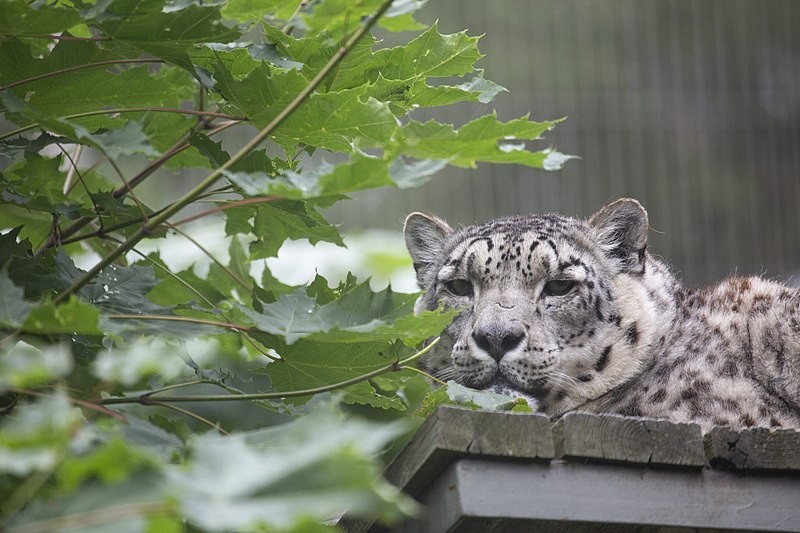According to the zoo, an 11-year-old snow leopard who was one of five big cats to test positive for COVID-19 in an Illinois zoo last month has perished from the virus's effects.

Big Cats with Covid
The Miller Park Zoo in Bloomington reported Thursday that Rilu, whose portrait was previously projected atop New York City's renowned Empire State Building to illustrate the need to conserve endangered species, died after "struggling with COVID-induced pneumonia."
It was discovered on Dec. 3 that the spotted mountain cat, which has an estimated population of a few thousand according to the extinction-tracking organization International Union for Conservation of Nature, was infected. According to the zoo, the cat, along with three other snow leopards and a Sumatran tiger, initially displayed symptoms of the illness two weeks ago.
A zoo spokeswoman told HuffPost Sunday that the four additional cats tested positive for the infection still show minor symptoms.
Rilu the Snow Leopard
In an Instagram post, the zoo added, "Guests and staff will miss Rilu's charisma and beauty, but he will not be forgotten." According to the animal protection group Snow Leopard Trust, snow leopards may live up to 22 years in captivity. The larger-than-life shot of Rilu featured on the 102-story New York skyscraper in 2015 was published on Friday by wildlife photographer Joel Sartore, who also urged people to get vaccinated against the virus. "The illness is exceedingly contagious among snow leopards, and it is frequently deadly." Please get a vaccine and booster if you haven't already. He wrote, "It's more than simply human lives that are at risk." Rilu, who had seven live pups while at the zoo, is not the first known snow leopard to die from the virus, according to Sartore.
Three more snow leopards died in a zoo in Nebraska in November from COVID-19 complications. Likewise, their deaths occurred less than a month after they tested positive for the disease. At one zoo, two Sumatran tigers tested positive for the illness, but they were believed to have made a complete recovery.
Related Article : Two Hippos in Belgium Tested Positive for Covid-19, First Case of Infection in the Species
Cross-Species Infection
According to the Cornell Feline Health Center, people can infect cats with the coronavirus and disseminate it to other felines. Still, it's less probable that cats can convey the virus to humans.
According to the center and federal health officials, feline caretakers diagnosed with COVID-19 should confine themselves and leave their cats to someone else or avoid contact with them as much as possible.
The zoo's last month statement said that the animal facility where the snow leopards were confined had been shuttered for two weeks previous to the cats testing positive for the illness, and "any issue has been isolated."
According to local station WMBD, the facility was shuttered again last week due to increased COVID-19 cases around Central Illinois.
Safety Protocols
According to the zoo's website, all visitors must wear masks while entering a building that houses an animal habitat to protect the animals.
For more health and medicine related news, don't forget to follow Nature World News!
© 2025 NatureWorldNews.com All rights reserved. Do not reproduce without permission.





